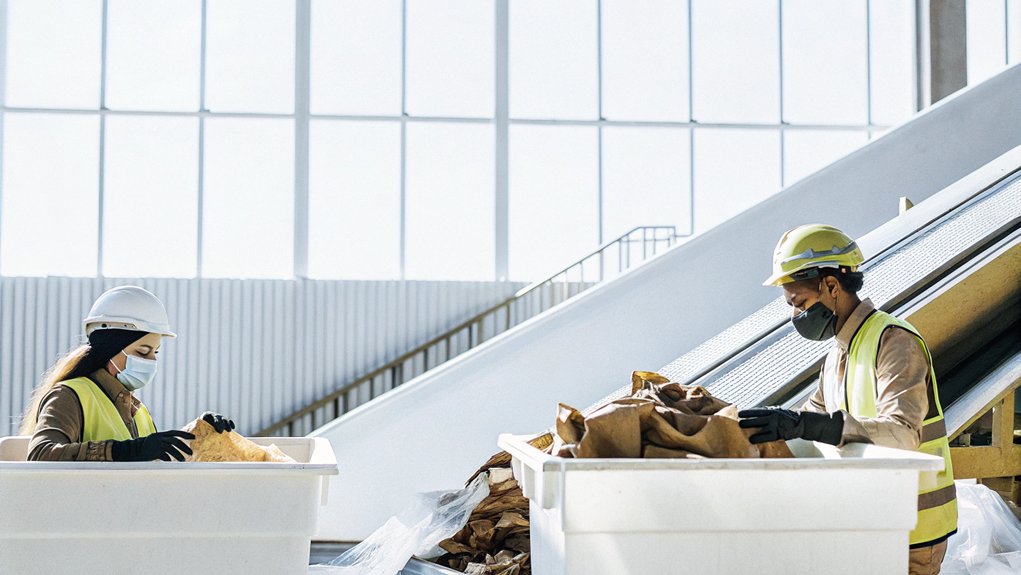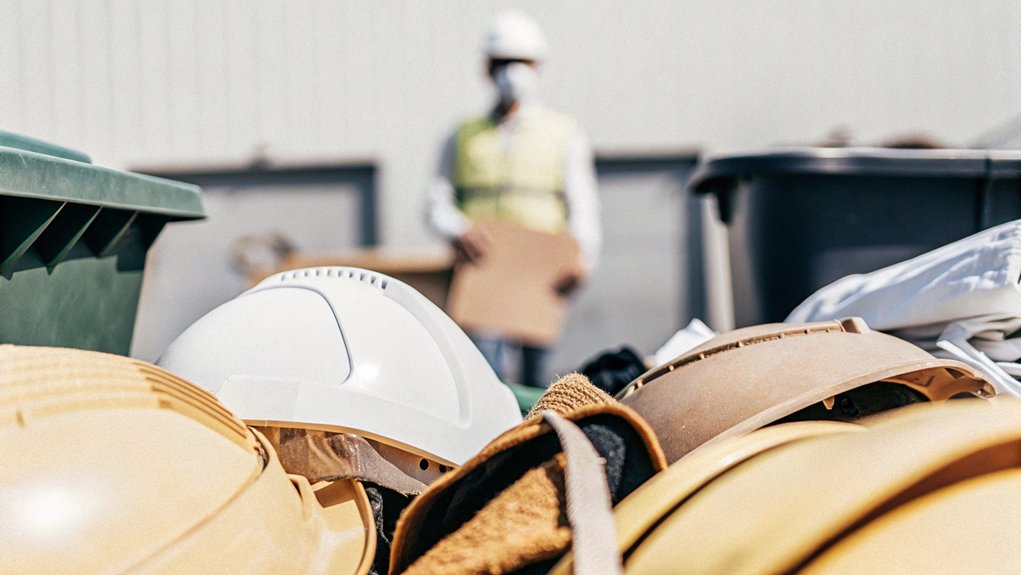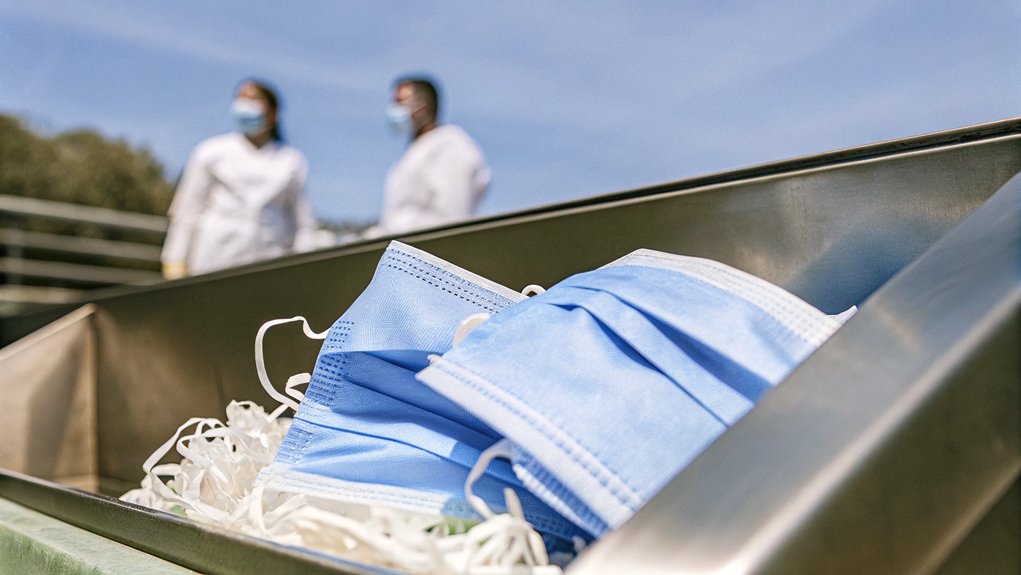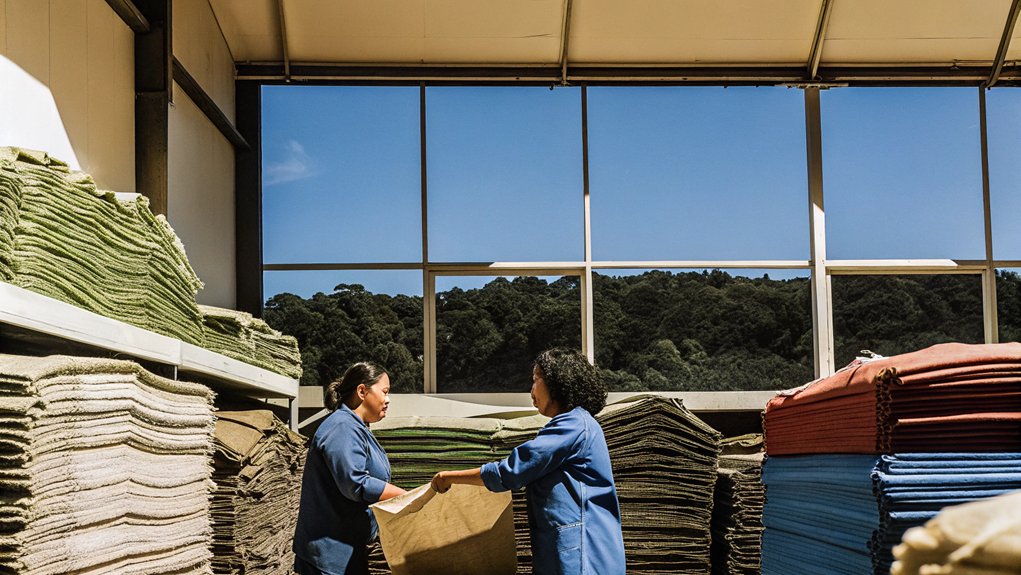PPE Recycling: Driving Sustainability in Production
PPE recycling plays an essential role in enhancing sustainability in production by reducing environmental impact and conserving resources. By integrating this practice, you can considerably lower energy consumption and waste, aligning with regulatory standards. It's not just about compliance; it's about fostering a circular economy that benefits both your organization and the planet. So, how can you effectively implement PPE recycling to maximize these advantages and transform your production processes?
Key Takeaways
- Recycling PPE significantly reduces landfill waste, promoting a sustainable environment and conserving valuable resources.
- Implementing PPE recycling programs can lead to substantial cost savings on equipment purchases and waste disposal expenses.
- A circular economy approach in PPE recycling minimizes resource depletion, lowering energy consumption and enhancing sustainability efforts.
- Compliance with environmental regulations through PPE recycling improves organizational reputation and may lead to financial incentives.
- Supporting initiatives like AmorSui's net-zero marketplace showcases commitment to sustainable practices and responsible resource management.
Environmental Impact Reduction
As you consider the importance of reducing environmental impact, recycling personal protective equipment (PPE) emerges as a practical solution. By diverting used PPE from landfills, you contribute to a healthier, more sustainable planet.
Recycling PPE not only minimizes waste generation but also conserves valuable resources, reducing energy consumption and water usage in production. This approach can lead to significant cost savings for your company, cutting down on the need for new equipment and disposal expenses.
Additionally, implementing recyclable PPE helps guarantee compliance with environmental regulations, enhancing your organization's reputation and trust with stakeholders.
Ultimately, embracing recycling PPE fosters a circular economy, promoting resource efficiency and paving the way for a sustainable future that aligns with your values.
Resource Conservation

While many might overlook the impact of personal protective equipment (PPE) on resource conservation, recycling this gear plays an essential role in minimizing the depletion of our planet's natural resources.
By choosing recyclable PPE, you contribute to conserving raw materials, reducing the need to extract new resources. The recycling process considerably lowers energy consumption, saving up to 66% of the energy required for new plastic production.
Choosing recyclable PPE helps conserve raw materials and significantly reduces energy consumption in plastic production.
Additionally, recycling just a ton of plastic can save around 7,000 gallons of water. This practice supports a circular economy, where materials are reused, enhancing sustainability.
Embracing recycled PPE not only fosters a responsible approach to resource conservation but also strengthens our community's commitment to a healthier planet.
Cost Savings

Recycling PPE not only supports resource conservation but also leads to significant cost savings for organizations. By implementing a recycling program, you can drastically reduce operational costs, minimizing the need for new equipment purchases and potentially saving thousands annually.
Diverting used PPE from landfills lowers your disposal expenses and optimizes your waste management budget, enhancing financial efficiency. Additionally, recycling cuts costs associated with raw material sourcing, boosting your bottom line.
Shifting to a circular economy fosters new revenue streams from recycled materials, which can be reinvested into sustainable business practices. By embracing these initiatives, you not only improve your financial standing but also contribute to a community focused on sustainability and responsible resource use.
Regulatory Compliance

To guarantee your organization remains compliant with environmental regulations, it's crucial to develop a robust PPE recycling program.
By adhering to sustainability standards, you'll not only reduce PPE waste but also enhance your company's reputation as a responsible business. Many jurisdictions mandate that PPE producers implement effective recycling initiatives, which fosters trust from stakeholders and customers who value environmental responsibility.
Adopting sustainability standards not only minimizes PPE waste but also bolsters your reputation as an environmentally responsible business.
Additionally, compliance can lead to incentives like tax breaks or grants, benefiting your bottom line. In the healthcare sector, the Health Sector Climate Pledge underscores the urgency for organizations to adopt sustainable PPE practices, further emphasizing the importance of regulatory compliance.
Your commitment to these practices showcases your dedication to a sustainable future, fostering a sense of belonging within your community.
Circular Economy

As organizations seek innovative ways to minimize waste, adopting a circular economy model for personal protective equipment (PPE) emerges as an essential solution.
By emphasizing the reuse and recycling of PPE, you can greatly reduce the staggering 14,000 tons of healthcare waste generated daily, with over 90% remaining unrecycled.
Incorporating recycled PPE not only conserves raw materials but also decreases energy and water consumption in manufacturing.
Initiatives like AmorSui's net-zero marketplace exemplify how a sustainable approach can reshape the medical supplies industry.
Shifting to a circular economy not only guarantees compliance with environmental regulations but also enhances your company's reputation.
Frequently Asked Questions
How to Make PPE More Sustainable?
To make PPE more sustainable, you should focus on using sustainable materials and eco-friendly alternatives.
Opt for products made from biodegradable fabrics or those that are free from harmful chemicals.
By promoting a circular economy, you can reduce waste and enhance resource efficiency.
Encourage the adoption of reusable PPE options, which not only minimize environmental impact but also foster a sense of belonging to a community dedicated to sustainability and responsible consumption.
How Does Recycling Contribute to Sustainability?
Recycling's the superhero of sustainability!
It fosters a Circular Economy by turning waste into valuable resources, promoting Resource Conservation and Waste Reduction.
When you recycle, you're not just cutting down on landfill overflow; you're actively participating in an eco-friendly solution.
This reduces energy consumption and raw material demand, making a significant impact on our planet.
What Is the Environmental Impact of PPE?
The environmental impact of PPE waste is significant, as improper disposal can lead to soil and water contamination, posing health risks to both humans and wildlife.
You'll find that industry responsibility is essential in addressing these issues. By adhering to environmental regulations, manufacturers can reduce their ecological footprint.
Emphasizing sustainable practices, such as shifting to reusable options, not only mitigates pollution but also fosters a sense of belonging within a community committed to protecting our planet.
How Is PPE Recycled?
Ever wondered how your used PPE materials transform into new products? It all starts with specialized recycling processes.
First, facilities collect and sort the PPE by material type, utilizing industry innovations to break down everything from plastics to textiles. This guarantees non-biodegradable components are processed effectively.
Many organizations now implement take-back programs, making it easier for you to participate in reducing waste while promoting a sustainable future.
Together, we can make a difference!
Conclusion
Incorporating PPE recycling into your operations can greatly boost sustainability efforts. Did you know that recycling just one ton of PPE can save up to 66% in energy compared to producing new materials? By embracing this practice, you're not just reducing waste but also conserving resources and cutting costs. Plus, you'll enhance your compliance with regulations and strengthen your organization's reputation. It's a win-win for both your bottom line and the planet.